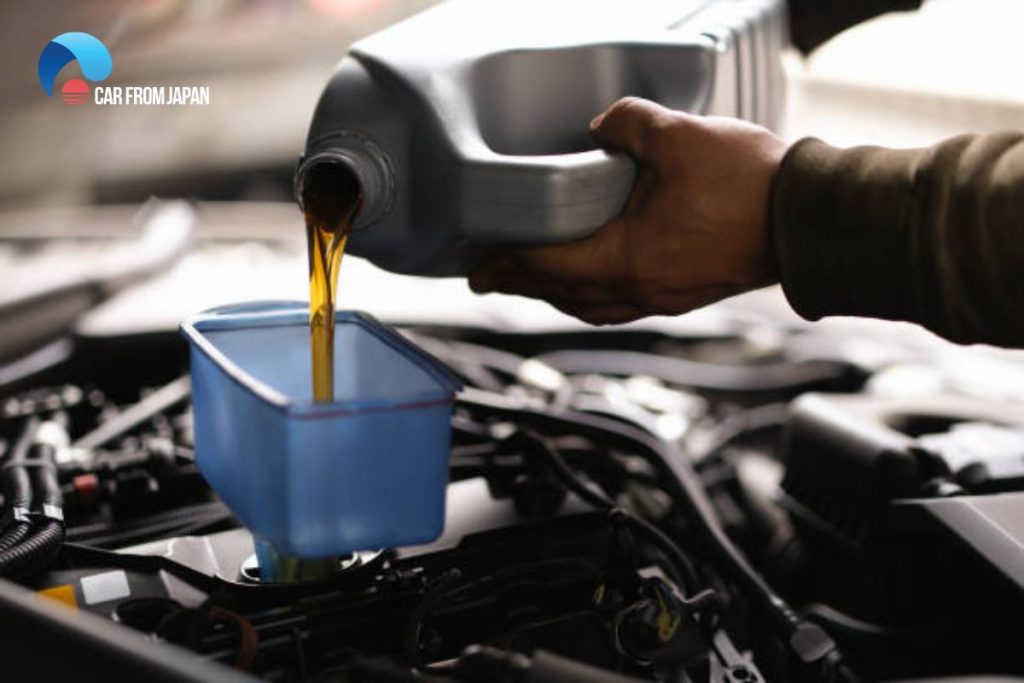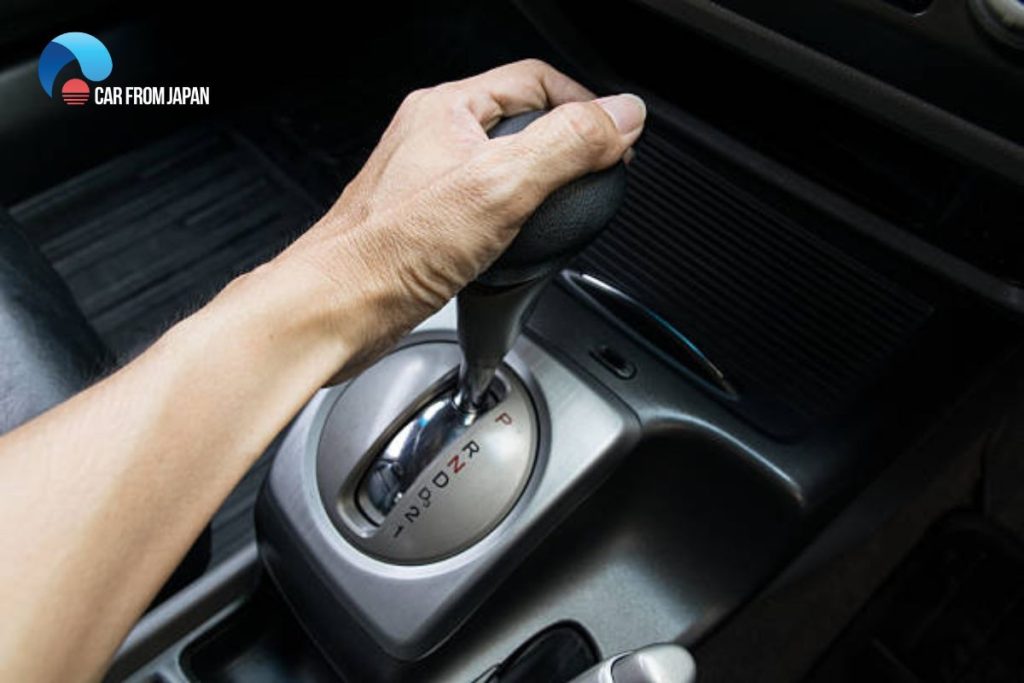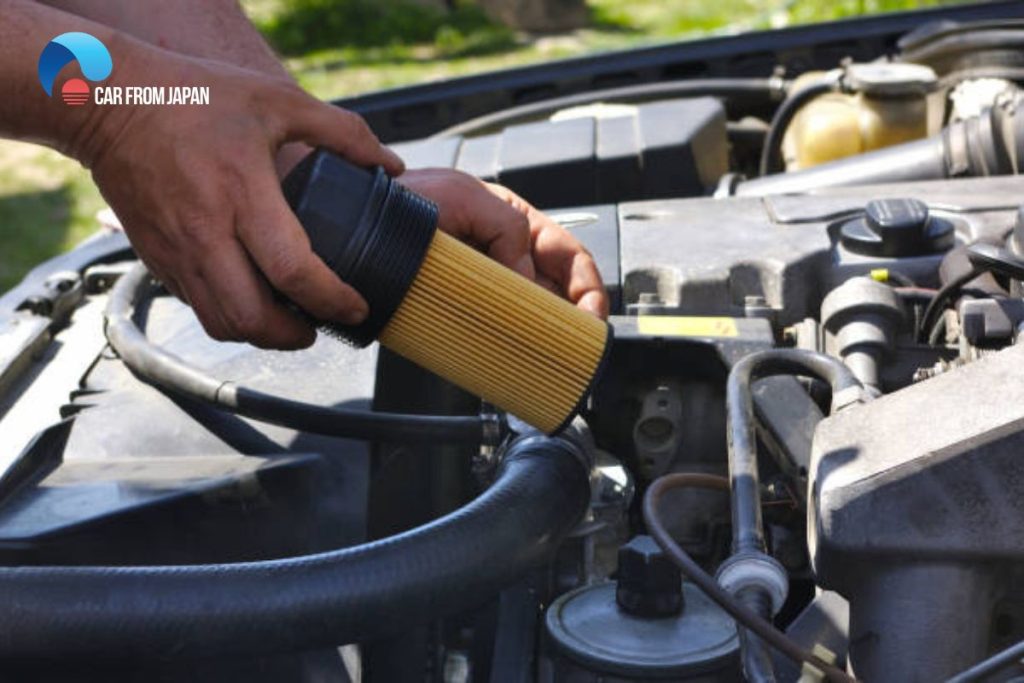Delayed shifting when accelerating isn’t just an annoyance; it can also pose a safety hazard. When your car struggles to accelerate quickly, it can make merging, overtaking, and navigating busy intersections more dangerous. What causes delayed shifting in your car, and how to cure this situation? This article will help you find the answer:
Contents
Delayed Shifting: How Does It Happen?
You start your engine, shift, and you turn it off… or not. Instead of accelerating, your vehicle will pause before actually changing direction. This delay is called Delayed Shifting, and it commonly happens in automatic transmissions that use electronic and hydraulic pressure to shift.
It’s a form of the slip where the clutch, used to make the car move, becomes sluggish and unresponsive. When you hit the accelerator, the car won’t accelerate, but RPMs go up, and your speed doesn’t increase; it will say that the transmission is going into gears but not there.
Delayed shifting is described as the time delay that happens from when you change gears until you have a response from the transmission. The lag can last a few seconds or up to a minute.
This problem makes you become anxious and believe that there is a component or some problems that could get worse. Of course, you may be wondering why the delayed shifting happened. We’re here to help you:
Why Has Your Car Delayed Shifting When Accelerating?
Overfilling transmission fluid

Gear oils are different from engine oils because they do not burn. They play an important role in helping the gearbox run smoothly, reducing friction, preventing wear, and increasing the efficiency of the mechanical transmission, as well as supporting smooth shifting.
Overfilling fluid can lead to transmission problems. When the transmission fluid is too high, it causes the fluid pressure to change, creating cavitation bubbles. Symptoms of transmission cavitation are erratic shifting, internal transmission damage, and oil starvation.
Many drivers will think that overfilling fluid for the transmission will help it operate smoothly, but the fact is not like that it will cause hard shifting and make the fluid lose its lubricating properties. It can also lead to the entire system crashing and not working.
Low transmission oil
Too much oil is not good, so how about the low transmission fluid? Of course, it will not be an ideal situation. Once that happens, the torque converter that creates the pressure doesn’t work smoothly.
There is no more hydraulic pressure on the solenoid, the result will be the gears not shifting in the car even when accelerating. One of the most common signs of low transmission fluid is that your transmission will make a whining noise and all gears, including the park and neutral.
Other signs can be slipping when you push the throttle down or when you’re having a steady RPM, your transmission shifts up and down erratically.
If you find that there is an oil spill or drip under the car, check the transmission to see if there is a problem with the hole. Usually, the oil leak in the gearbox is due to aging rubber seals, buckling seals due to contact, or strong collisions that open the gaskets.
Dirty fluid
The oil transmission can be contaminated with metal flakes. It will be a big problem: the internal of the transmission wears prematurely. If the transmission fluid has a burnt smell to it or is stark black, your gearbox will not respond when you push the accelerator. It happened because the transmission hydraulic system couldn’t build up enough pressure to shift the gear.
Faulty control module
Having a bad transmission control module (or you can call it TCM) is like having faulty communication between your brain and the movements of your body. If the brain doesn’t tell the body to do certain things, the body won’t react, or it will do things the wrong way.
The same goes for the transmission control module. For example, a malfunctioning speed sensor can distort the shift time calculation due to the information that the vehicle speed is lower or higher than the actual speed.
The transmission control module receives input from various sensors, such as the vehicle speed sensor and engine sensors, to help determine the vehicle speed. Once the speed is determined, the transmission control module will send the signal to the shift solenoids to shift gears. When the shift solenoids are failing, it will cause slipping, delayed shifting, and no response.
6 Best Ways To Help You Escape From Delayed Engagement

Delayed engagement when accelerating or reversing can be a serious problem. If you do not take timely action, because, as we know, a car’s transmission is a very important part of the entire vehicle’s operating system. If you find any abnormality in the transmission, like hard shifting, spend a little time learning about the methods to fix this problem:
Check the transmission fluid
Your transmission fluid is the first problem you should monitor when you notice delayed shifting. This oil will show you the indicators of your transmission, like color, level, and smell. You’re able to check the transmission fluid with the dipstick; it will tell you the condition of your fluid, whether it’s too high or low, so you will know what to do in the next step.
Some other automatic transmissions do not have the dipstick, they have a fill hole. You will pump the transmission until it begins to pour out the fill hole in case your gearbox has low fluid. Use oil of clear origin, guaranteed quality, and suitable for your vehicle. Besides, it is necessary to suck up the old fluid and clean the gearbox before replacing the new oil.
Change the transmission oil periodically according to the maintenance time or according to the number of kilometers of the vehicle. Normally, you should change the liquid every 50,000 km for conventional automatic transmissions. However, for vehicles with CVT, continuously variable transmission, you should change the oil for the first time at 40,000 Km and then periodically change it every 25,000km.
Bands and clutches
Transmission bands are metal straps containing friction material that is used to tighten around the gear train. When the transmission shifts gears, it will perform a different action.
When your car has a band issue, you will notice the delayed shifting when you push the pedal. Over time, the band easily becomes worn out or broken. Obviously, in this situation, adjusting or replacing the band is a necessary thing to help you avoid further damage being done to the car transmission.
Whether your vehicle has a manual or automatic transmission, the clutch also plays a crucial role in your transmission. The clutch is a part of the car engine, responsible for transmitting or disconnecting the torque from the engine to the transmission.
This is one of the factors affecting the fast and smooth acceleration of a car. Like a “bridge” to transmit torque between the engine and the gearbox, the car clutch can be closed or opened, helping the car move forward, backward, or stop under the driver’s control.
When the clutches are old or worn out, they can no longer hold friction. In your car, the clutch acts as a brake pad – use the friction to grip the flywheels of your engine.
If the friction material or the ball bearing (the piece of metal that moves the clutch when you hit the pedal) is broken, you will not be able to fully engage the clutch and the gears. And your clutches should be replaced to make sure the transmission operates smoothly.
Don’t ignore the solenoid
The transmission solenoid’s job is to direct the hydraulic fluid into the valve body to engage the correct gear. Common signs of a bad solenoid are erratic shifting and the car not shifting gears when accelerating.
When you meet this problem, you certainly think of calling the mechanic, but we recommend you check the trouble codes to understand exactly what’s faulty with your transmission.
After that, you can check the shift solenoid for a loose connection and also check the damaged wire. The solenoid can be mounted externally or internally on the transmission.
According to the expert, the solenoid issue can be easily fixed by replacing the transmission fluid or completely flushing it. Whether you decide to change the solenoid fluid or flush it, it’s always worth it and does not cost too much.
Check the transmission filter

A filter is a device that helps you remove impurities from the fluid in an automatic transmission. Having the features like other types of filters, the transmission filter will eventually become clogged with dirt, metal debris, and other factors if it is never replaced.
When this component is disabled. It can no longer pull the required transmission fluid consistently through the oil pump to keep the solenoids working properly. And it’s also the reason that the transmission fluid is contaminated.
To prevent filter problems, you should keep your car in good condition, which means you can clean and check the vehicle frequently. Don’t overload your vehicle because it can cause the transmission filter to be clogged.
Replacing the filter regularly is the way to keep your filter to avoid the debris or any dirt that can pervade the fluid and don’t have a chance to cause a problem.
Avoid revving the engine
We are sure that many drivers have been involved in at least one or more in their lives. Revving is the action when you step on the pedal while your car is still parked. It will force your engine to operate in the same way as if you were driving your car. The engine RPM will increase as you hit the gas pedal. And you will hear the roar from your engine until you take your foot off the accelerator.
Revving the engine is not a great action you should do if you don’t really have to, because it can damage your clutch. When RPM rises too suddenly in a short time, it sometimes leads to too much tension and heat. This can make your clutch wear out. And delayed shifting is an inevitable thing that will happen when the clutch fails.
Protect the transmission pump
The function of the oil pump is to provide lubrication to the transmission components. And it also pumps the fluid to the valve, where the valve body controls the clutch and band. When the transmission pump fails, it will cause a series of transmission issues.
Some of the common symptoms of the failing transmission are whining noise, hard shift when accelerating…One of the methods you can use to protect the oil pump is to keep the transmission fluid topped off and clean. Besides, you shouldn’t tow a heavier load for your car because it will put stress on the system.
FAQs
Is delayed shifting always a serious problem?
Not necessarily. Sometimes it can be a minor issue caused by something simple like low transmission fluid. However, persistent delayed shifting can indicate a more serious problem that needs professional attention.
Is delayed shifting more common in automatic or manual transmissions?
While both types can experience delayed shifting, it’s more commonly associated with automatic transmissions due to their complexity.
Can I adjust the shift points on my automatic transmission to fix delayed shifting?
Some vehicles allow for adjustments to shift points, but it’s generally not recommended to tamper with these settings without proper knowledge and tools. Incorrect adjustments can worsen the problem.
What other maintenance tasks can help prevent transmission problems?
In addition to fluid changes, keeping your engine properly tuned and avoiding aggressive driving habits can also contribute to a longer lifespan for your transmission.
Summary
Whether it’s a simple fix like low transmission fluid or a more complex problem like a faulty solenoid, addressing the delayed shifting when accelerating promptly can save you headaches and money down the road.
Common culprits include low transmission fluid, a worn transmission filter, faulty solenoids, worn clutch plates (in manual transmissions), and sensor issues. By paying attention to your car’s performance and addressing any signs of delayed shifting promptly, you can keep your transmission running smoothly and enjoy a safe and enjoyable driving experience.



